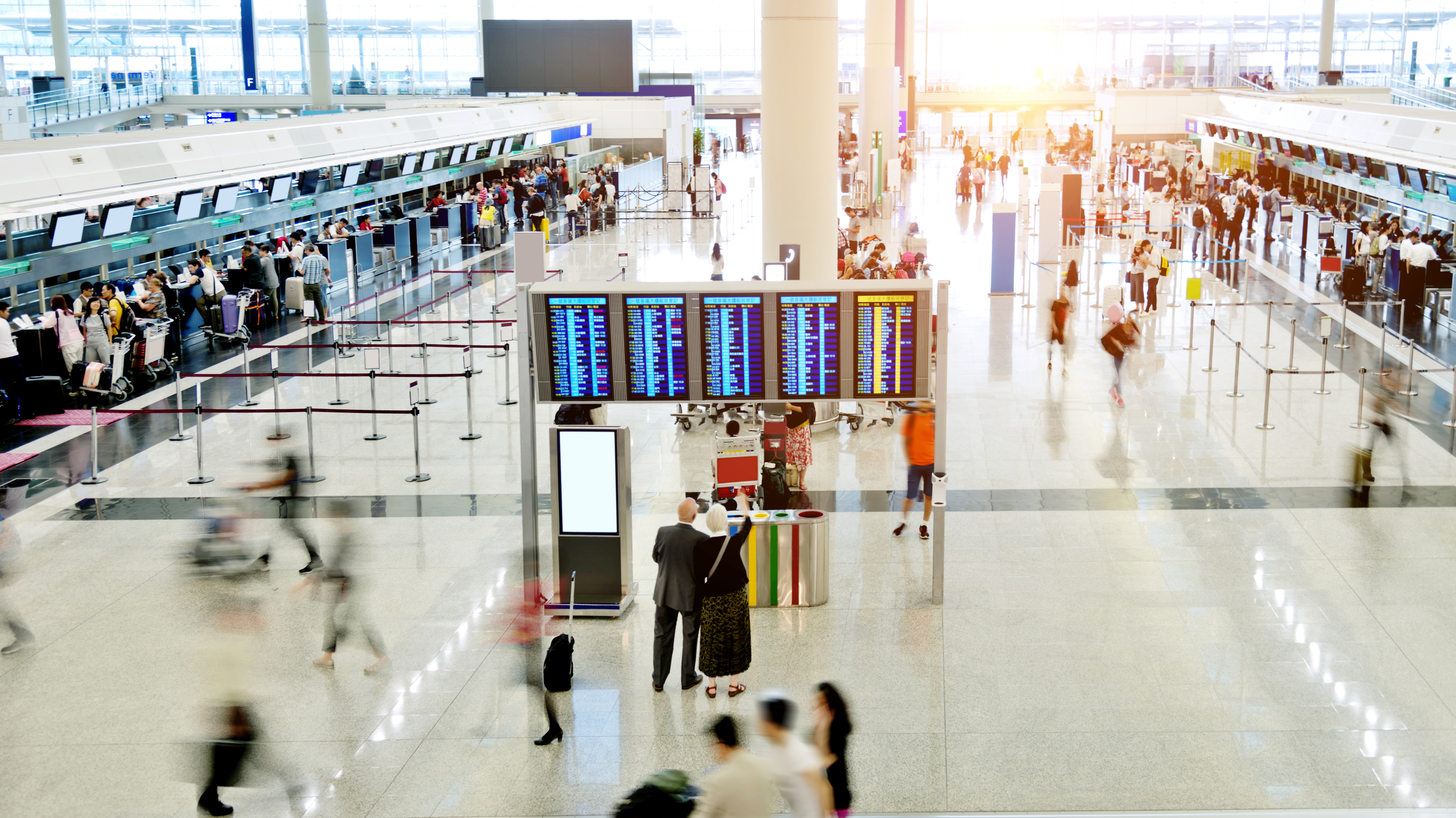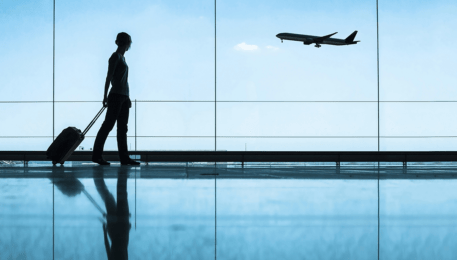Editor’s note: This Week in Travel (TWT) is your essential guide to smoothing the road from here to there for your attendees and yourself.
Russian Hackers Take Aim at U.S. Airports
Russian hackers, suspected to be from the group “Killnet,” cyber-attacked over a dozen major U.S. airports Monday morning. Airports affected include LaGuardia Airport (LGA), Los Angeles International Airport (LAX), Denver International Airport (DEN), Colorado Springs Airport (COS) and Atlanta Hartsfield-Jackson Airport (ATL).
All the individual airports targeted reported that there was no intrusion into air traffic control, however, consumers were unable to access public-facing information from airports on flights.
As reported by CNN, Kiersten Todt, chief of staff of the U.S. Cybersecurity and Infrastructure Security Agency, said there was “no concern about operations being disrupted” while at a security conference on Sea Island, Georgia.
Read More: Beware the Public Wi-Fi Network: 6 Ways to Practice Cybersecurity While Traveling
United Airlines Bulks Up in Summer 2023
United Airlines, which recently announced it would stop flying out of John F. Kennedy International Airport (JFK) to concentrate on its Newark hub in NYC, has debuted a robust 2023 summer schedule that sees the carrier adding new service to three cities: Malaga, Spain; Stockholm, Sweden; and Dubai, United Arab Emirates.
The airline will also add six more flights to Rome, Paris, Barcelona, London, Berlin and Shannon in the Republic of Ireland . The airline says it will now fly to 37 cities in Europe, Africa, India and the Middle East by next summer, a schedule that United says currently flies to “more destinations than all other U.S. airlines combined.”
The airline says one reason for the adds is “historic levels of demand for travel to Europe in the summer peak, up 20% compared to 2019.”
Along with adding new flights, United will fly nine international routes it added last summer, including direct flights between New York/Newark, New Jersey, and Nice, France; Denver and Munich; Boston and London; Chicago and Zurich; and Chicago and Milan, Italy; as well as flights to four destinations not served by any other North American airline, including Amman, Jordan; Azores, Portugal; Palma de Mallorca, Spain; and Tenerife, Spain.
GBTA Sees Boost in International Business Travel Internationally
Global Business Travel Association (GBTA) released the results of its October 2022 Business Travel Recovery Poll.
Read More: Global DMC Partners Releases 2022 Destination Index
“We continue to see progress as business travel makes its way back to being a $1.4-trillion global industry, pre-pandemic. It is also important to understand the context of global business travel’s recovery. Asia is still opening its borders, international business travel in general started picking up only earlier this year across the globe, and the U.S. has only permitted unrestricted travel since June,” said Suzanne Neufang, CEO, GBTA. “Even as this latest poll shows economic considerations have eclipsed Covid-19 concerns, the industry is showing positive indicators and sentiment for 2023, a strong sign as business travel continues to come back over time.”
Key takeaways from the October GBTA Business Travel Recovery Poll include:
- Business travel volume continues to rebound when tracking recovery to 2019 pre-pandemic levels.
- On average, travel managers estimate their company’s domestic business travel volume is back to 63% and international business travel is back to 50% of their 2019 pre-pandemic levels. In addition, 26% of respondents estimate their international business travel volume has recovered to more than 70% of their company’s pre-pandemic levels.
- Economic considerations have eclipsed Covid concerns for the industry, but a majority of companies are not limiting their business travel specifically due to economic concerns.
- When asked to choose among factors that are more likely to limit business travel next year, 80% of travel suppliers say economic conditions, while only 4% cited Covid-19.
- However, 75% of travel buyers surveyed say their company had no immediate plans to limit business travel because of economic concerns. Nearly one-third (30%) say their company is unlikely to limit business travel, while 45% say they are taking a wait-and-see approach but are not seriously considering limiting business travel at this point due to economic concerns.
- Domestic travel recovery remains leads in terms of recovery, but international travel is closing the gap.
- Currently, 86% of survey respondents say nonessential domestic business travel is sometimes or usually allowed at their company. Additionally, 74% say the same for nonessential international business travel.
- By far, business travel respondents expect more recovery and growth for 2023 compared to this year.
- Over three-fourths (78%) of travel managers expect the number of business trips taken by employees at their company will be higher or much higher in 2023 versus 2022.
- Among travel suppliers, 85% expect the number of bookings by corporate clients will be higher or much higher in 2023. Additionally, 80% of suppliers expect travel spending by corporate clients will be higher or much higher in 2023 year-over-year.
- Over 65% of travel managers are optimistic their company will conduct more internal travel and external travel. Internal travel was defined as “meetings with colleagues or working at other company office locations,” while external travel examples are trips for sales meetings and conference travel.
The survey saw that remote and hybrid models of work would not “significantly impact business travel.”
-
- The industry is embracing remote work models (88%), as 68% of respondents say their company has a hybrid approach, where employees are expected to report to the office on some days and 20% indicate their company is working “full-time remote.” An additional 12% say they are “full-time in-office.”
- Of those with a hybrid or full-time remote work policy, 72% of respondents do not expect flexibility to work from home will impact the number of business trips taken by their employees. Additionally, 14% expect it will lead to more business travel, while an identical percent expect it will lead to less business travel.
The survey also found that “bleisure” travel was the benefiter of more hybrid or fully remote work.
-
- Many travel managers report they are seeing a rise in the desire for blended or bleisure travel among employees. Two in five travel managers (41%) have seen an increase in employees asking for blended travel, whereby they combine a business trip with a vacation or leisure component.
- For companies that allow hybrid or fully remote work, 44% say employees are allowed to work for extended periods outside of the city, state or province where they are typically based. This also includes 22% that even allow employees to work for an extended period outside of their home-base country.
- Some companies even reimburse employees for costs or expenses while working remotely—27% of respondents say their company does reimburse, while most do not (42%) or leave it to the manager’s discretion (25%).
Go to GBTA to see full results.




